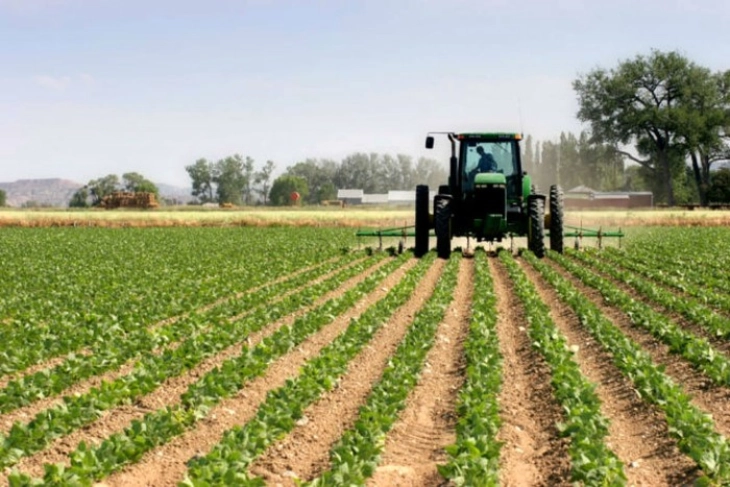Progressive agricultural policy reforms for greater and competitive domestic production
- Agriculture was one of the sectors hardest hit by the global crisis in 2022. The world faced the challenge of how to supply enough food. Producer costs were rising and stock market prices wer

Skopje, 4 January 2023 (MIA) – Agriculture was one of the sectors hardest hit by the global crisis in 2022. The world faced the challenge of how to supply enough food. Producer costs were rising and stock market prices were increasing.
In such conditions, which, according to the experts, are still uncertain, and the consequences are yet to be felt, country’s priority is how to increase and stabilize domestic production.
The authorities noted that we are facing the most difficult crisis so far, but they repeatedly urged the citizens not to worry, assuring them that basic food products, bread, flour, milk and oil will be available. They adopted a national plan for food production and established an intervention fund. They also implemented a package of measures for lower prices of basic food products, as well as to stimulate production.
As of December 1, the support for companies in the food industry came into effect. They receive electricity at a subsidized, fixed price of €80 per MWh, which should prompt a 10 percent decrease in the price of basic food products.
The food crisis encouraged the countries of the region to intensive cooperation and market expansion, to prepare and finance joint projects for the promotion of agricultural products, as well as to increased trade. Within the framework of the Open Balkans initiative, whose members are Albania, North Macedonia and Serbia, a Cooperation Agreement was signed in the area of food security mechanisms. With the Agreement, the members reaffirmed the need of cooperation to prevent and alleviate the potential shortage of basic agricultural and food products and agree that there should be no bans on trade in basic agricultural and food products.
According to the Minister of Agriculture, Forestry and Water Economy, Ljupcho Nikolovski, in the time of the biggest global crisis, the priority is to increase domestic food production and providing strong, timely, efficient support to farmers.
After the series of measures taken in the past 12 months, Nikolovski announced the new subsidizing model which, as he noted, puts real farmers in the focus. The new subsidizing model is one of the five key pillars of the Macedonian agriculture in 2023.
“After 15 years, we are replacing the old model with a new one that means planned and sustainable production – to produce more at lower costs. We must be responsible towards all citizens, especially in these crucial moments when we are in a global crisis. We must ensure that the domestic production of agricultural products and food is higher, stable and that we will have enough for domestic demand as well as for export to strengthen the economy. With the new subsidizing model, support will not be cut to any farmer. We direct the funds to those farmers who will cultivate important strategic crops, who will produce a crop and deliver it to domestic facilities. All registered farmers, whose main activity is agriculture, will be able to apply at the open public call throughout the year with their own business plan and idea, for a grant of €10,000 which they will use for investments in production. The new model obliges farmers to submit proof that they have produced and delivered crops, which was not the case before,” Nikolovski said.
12 billion denars for agriculture in 2023
The 2023 state budget has allocated 12 billion denars to the agriculture. The goal of this “historically largest agricultural budget for 2023”, as Minister Nikolovski said, is food security and increased production.
“We provide the historically largest agriculture budget amounting to 12 billion denars, which is a significant increase compared to 2022. In 2023 we continue with a strong and progressive agricultural policy, we start the biggest reforms in agriculture through the five key pillars: the new subsidizing model, support of small family businesses and small family wineries, capital water management investments, modernization of Macedonian agriculture and our main priority afforestation and restoration of the forests through the green transition. Our goal is to have more domestic food, to be import-independent, to create modern and competitive agricultural production, with motivated and satisfied farmers,” Minister Nikolovski said.
Mirjana Chakarova
Photo: MIA
Translated by Silvana Kochovska